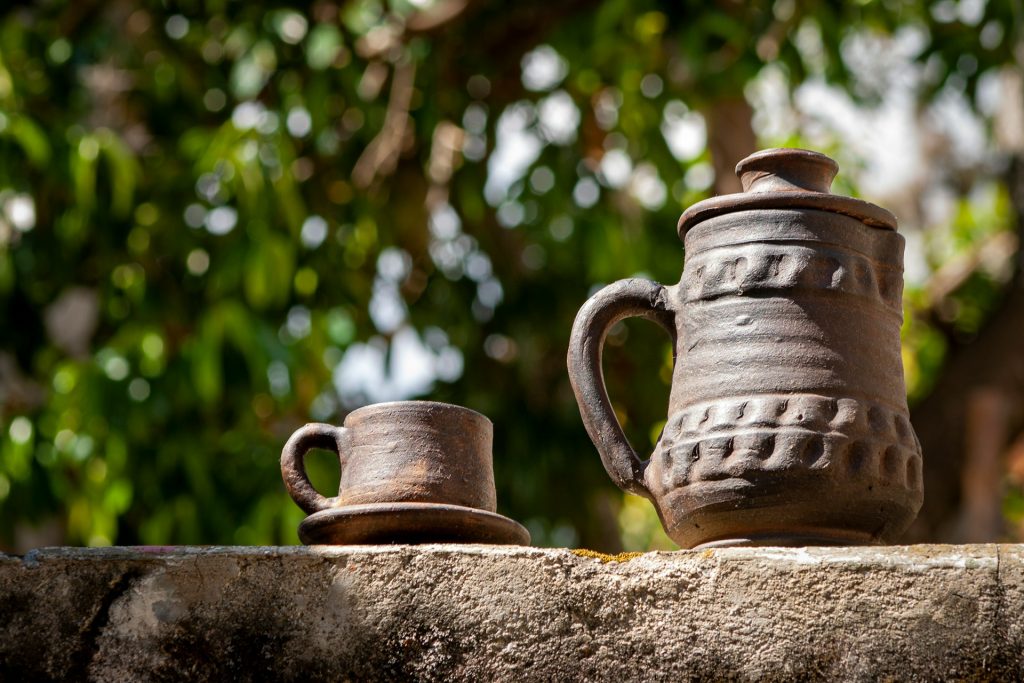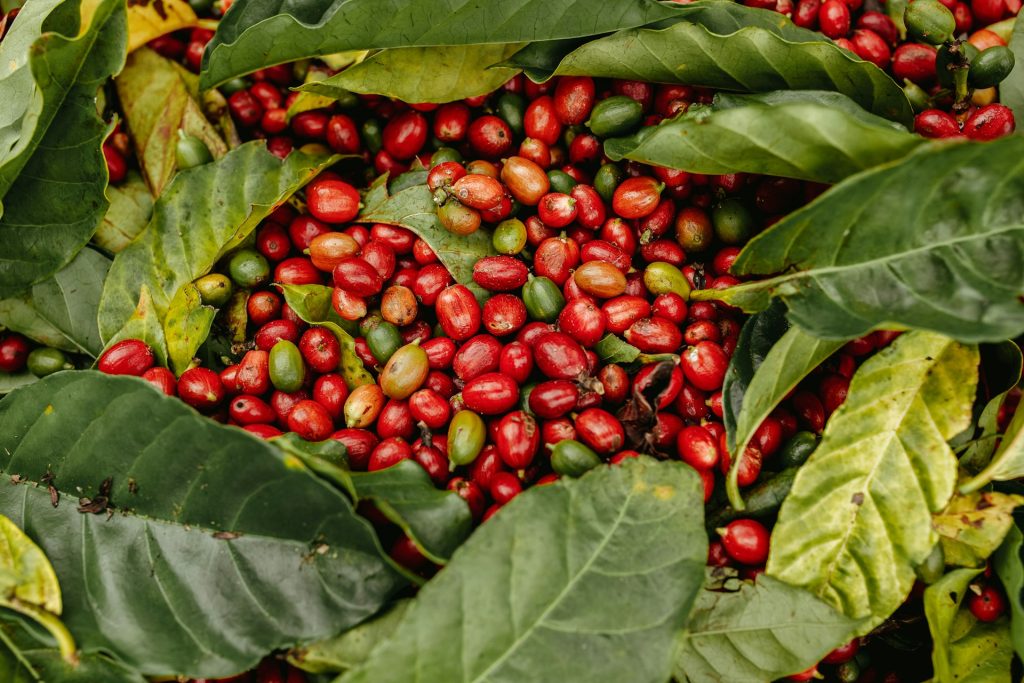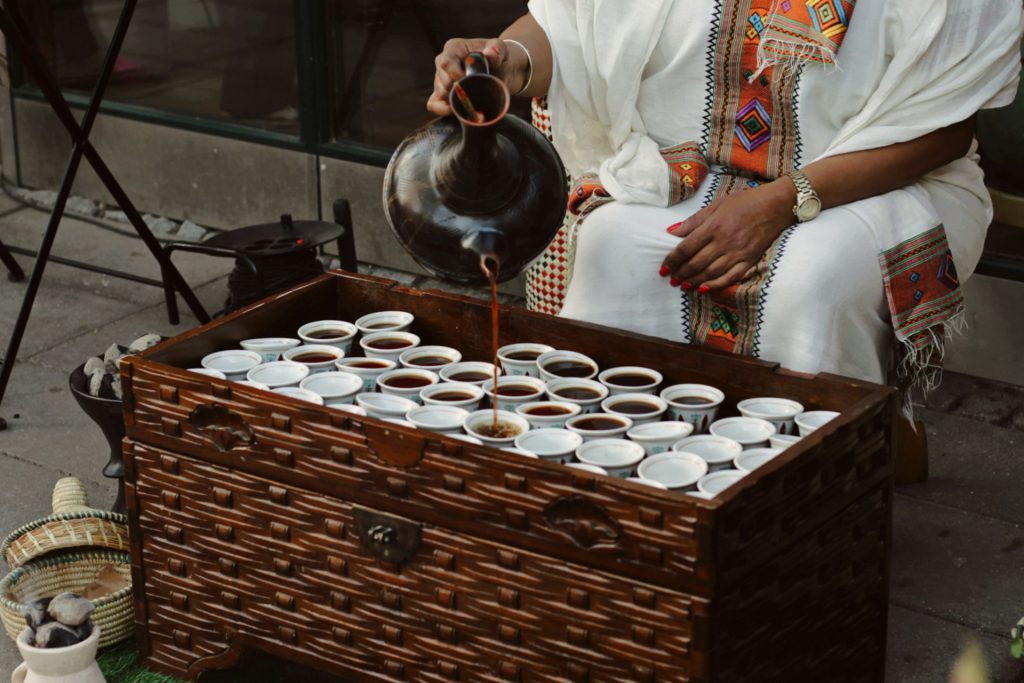Table of Contents
Ever tasted a cup of coffee that felt like it carried centuries of history in each sip? Ethiopia has you covered. Known as the birthplace of coffee, this East African nation offers far more than just a caffeine boost. Here, coffee is an art, a ceremony, and a cultural treasure that brings people together in a way few beverages can match.
The Legend of Kaldi
Many stories trace coffee’s origins back to an Ethiopian goat herder named Kaldi. According to legend, he noticed his goats acting especially lively after they chewed on bright red berries from a certain bush. Curious, he tried the berries himself, felt a rush of energy, and shared his discovery with local monks. Some versions say the monks tossed the berries into a fire, releasing that unmistakable aroma of roasted coffee. From this quirky tale grew an entire global phenomenon that we now simply call “coffee.”
While we can’t confirm every detail of Kaldi’s story, it’s an essential part of Ethiopian folklore. You’ll often hear references to this goat herder when you travel through Ethiopia, as locals take pride in being the first to uncover coffee’s stimulating secrets. It’s a reminder that while coffee is now grown all over the world, Ethiopia holds a unique place as the legend-filled cradle of the coffee bean.
Ethiopia’s Coffee Ceremony

Visiting an Ethiopian home often means you’ll be invited to take part in a traditional coffee ceremony. This is far more than tossing grounds into a machine; it’s a slow, deliberate process that can last an hour or more. Families usually gather around a small area where the host roasts green coffee beans in a flat pan over charcoal. The rich smell of roasting beans drifts through the room, signaling the start of something special.
Once roasted, the beans are ground—often by hand using a mortar and pestle—and then brewed in a traditional clay pot. The entire ritual is about hospitality and respect. It’s a time to share news, bond with friends, or just relax while savoring a drink that Ethiopians have cherished for centuries. If you’re ever invited to join one, consider it an honor; it’s a window into local culture that few outsiders get to witness.
Roasting and Aromas
Roasting is a highlight of the Ethiopian coffee ceremony. Families take green coffee beans, place them in a shallow pan, and set them over glowing coals or a small stove. As they stir, you can watch the beans gradually shift color from pale green to golden to a deep, rich brown. This transformation fills the air with a smoky, nutty scent that is one of the most comforting aromas you’ll ever experience.
The host might walk around the room, gently fanning the fragrant smoke toward guests. This is not just about smelling nice; it’s a gesture of hospitality and a preview of the flavor journey to come. You’ll find each family or hostess has a preferred roasting level, influencing whether the final cup is light and bright or deeper and more robust. It’s almost like a personalized signature, turning each ceremony into a distinct event.
The Jebena
The clay pot used to brew coffee in Ethiopia is called a jebena, easily recognized by its round base, slim neck, and curved spout. Most jebenas are handmade and may vary slightly in shape or size, but their purpose is consistent: to brew coffee slowly and preserve its flavors. After the beans are ground, the powder is placed into the jebena along with water, and the pot is then set over a heat source, typically charcoal.
This slow heating process allows the coffee grounds to mingle with the water, pulling out flavors that are often fruity, floral, or even slightly spiced. A jebena is not just functional; it also holds cultural meaning. It symbolizes tradition, patience, and the communal spirit of sharing something made with care. When the coffee is ready, the host pours it in a steady stream, holding the jebena high above tiny cups, showcasing both skill and artistry.
The First, Second, and Third Rounds

Ethiopian coffee ceremonies don’t end with just one brew. Instead, the same grounds are often brewed three times. Each round has its own name and significance. The first round, called Abol, is typically the strongest and is meant to honor the coffee’s full flavor. The second round, Tona, is slightly milder, yet still brimming with taste. Finally, there’s Bereka, the third round, which many say carries a pleasant, lighter essence.
Guests are expected to sip each round as part of the ritual. Skipping a round is considered impolite, although you can drink smaller amounts if you need to. By the time you reach Bereka, the coffee has mellowed, symbolizing a well-rounded conclusion to the ceremony. It also gives everyone time to chat, laugh, and connect, making coffee not just a beverage but an experience that weaves people closer together.
Flavor Profiles and Regional Specialties
Ethiopia’s landscape is incredibly diverse, with highlands, valleys, and forests that each yield unique coffee flavors. Regions like Sidamo, Yirgacheffe, and Harrar are known worldwide for their distinct taste profiles. Sidamo coffees often feature citrusy notes, while Yirgacheffe beans can reveal floral, tea-like aromas. Harrar beans might lean toward winey or berry-like undertones.
You might taste these differences more keenly in a traditional ceremony than you would in a factory-roasted blend. That’s because the local approach of small-batch roasting and immediate brewing preserves subtle flavors. If you can, try beans from different Ethiopian regions side-by-side. You’ll quickly see why coffee connoisseurs speak so fondly of this country’s varieties.
Beyond the Ceremony
While the coffee ceremony is the showpiece, Ethiopia’s love affair with coffee doesn’t stop there. You’ll find modern cafés in cities like Addis Ababa that serve espresso-based drinks, often with a local twist. Coffee stands along busy roads sell quick cups to workers on the go, bridging the gap between tradition and convenience.
Still, the slower pace of the ceremony remains at the heart of Ethiopian coffee culture. Many city dwellers maintain ties to their rural roots, and weekend gatherings might feature a friend or family member patiently roasting beans and brewing coffee the old-fashioned way. It’s a ritual that ties modern life back to centuries of heritage, proving that some customs are worth holding onto no matter how fast the world moves.
Honoring the Cradle of Coffee

Ethiopia isn’t just another coffee-producing country; it’s the birthplace of this beloved beverage, with stories and traditions that go back hundreds of years. Tasting Ethiopian coffee, especially through a home-style ceremony, reminds us that coffee’s power goes beyond the buzz. It’s about gathering together, sharing a ritual that has stood the test of time, and understanding that every sip holds a piece of global history.

I’m Audrey, a dedicated mother of teenagers with an insatiable love for coffee. On BeanBrewLove.com, I intertwine my need for caffeine with reflections on life. Whether expressing a nostalgic sentiment or injecting a hint of sarcasm, my blog is a reservoir of coffee culture, brewing techniques, and global coffee reviews.




